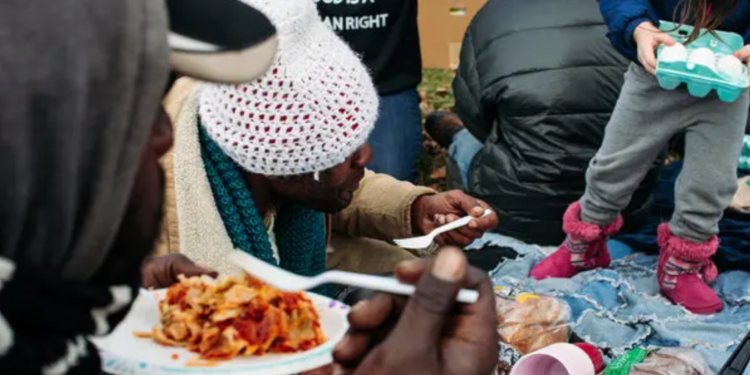March 11, 2025 Story by: Editor
Have you ever experienced life in a food desert? For those residing in such areas, access to affordable and nutritious food is severely limited. Consequently, they are more likely to consume ultra-processed or “junk foods” compared to those with better access to grocery stores.
Due to the nation’s history of racial redlining, Black communities are disproportionately affected, highlighting how systemic racism continues to reinforce inequality.
Discriminatory policies once codified into law still shape present realities. When individuals are hungry, they need sustenance—not everyone has the luxury of being selective about their meals. A person’s location and employment situation influence their food choices, meaning the prevalence of unhealthy foods cannot simply be attributed to willpower alone.
Instead, the issue of accessibility must be addressed. Unfortunately, this crucial context is often missing from conversations surrounding cuts to federal food assistance programs.
For individuals who live far from supermarkets, keeping their kitchens stocked can be a significant challenge, especially for those dependent on public transportation. People working long hours in physically demanding jobs may not have the time or energy to cook daily meals.
Meanwhile, those experiencing homelessness lack the facilities to store, prepare, or cook food. There are many reasons why people in food deserts rely on so-called “junk food.” Items such as potato chips, cookies, candy, pastries, and small cakes are commonly found in low-income communities because they meet an immediate need. This is why framing the issue solely as a matter of personal choice overlooks the structural barriers that limit access to healthier options. Individuals in food deserts face these challenges through no fault of their own.
Robert F. Kennedy Jr. has recently been appointed as the Secretary of the Department of Health and Human Services. Known for his skepticism regarding vaccines, his views have sparked widespread debate. At one point, he suggested that Black individuals should follow a different vaccine schedule than White individuals.
While race is a social construct, Kennedy’s stance implied the existence of fundamental biological differences between racial groups. More recently, he has made another statement with implicit racial undertones, arguing that families receiving SNAP benefits should not be allowed to purchase sweets. “We shouldn’t be subsidizing people to eat poison,” he remarked.
On the surface, Kennedy’s statement may appear to be a simple concern for public health. However, it fails to account for the systemic factors that limit food choices for low-income families.
Restricting SNAP recipients from purchasing certain foods does not address the root problem—lack of access to fresh, affordable, and nutritious options. Instead, it reinforces harmful stereotypes about low-income individuals making poor dietary decisions while ignoring the structural barriers they face.
Without comprehensive solutions such as increasing access to grocery stores, improving public transportation, and addressing food affordability, such restrictions only serve to further stigmatize those in need rather than support their well-being.
Source: Medium

















